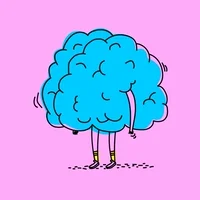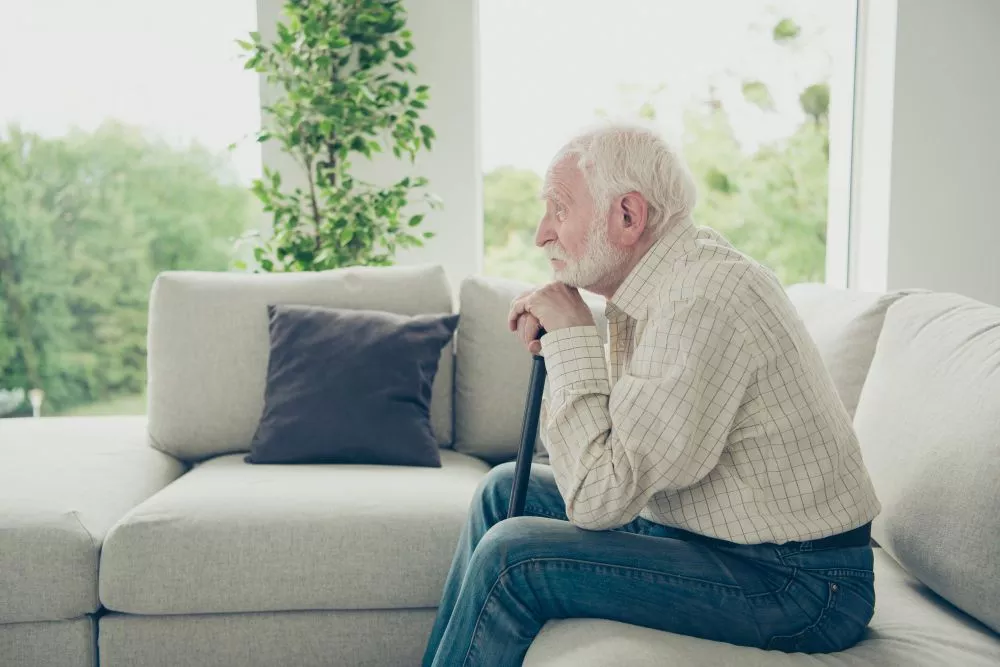Have you ever forgotten something important?
As a person who has grandparents with Alzheimer’s, I can tell you that anyone who has this disorder may forget many important events. If people who show early symptoms of Alzheimer’s do not take serious actions to prevent it, they may face unavoidable consequences. In this article, we are to provide you with comprehensive information about Alzheimer’s prevention through VR games. In case you or your loved ones have Alzheimer’s, and you are eager to know how to deal with it, read this article to the end.

What Is a VR Community?
A virtual community is a social network of people through which they chat, interact, hang out, and attend different classes. VR also enables people to watch movies and concerts and attend events. Indeed, virtual reality comes in handy for many purposes ranging from education and training to physical and mental therapy. But let’s be honest: the reason people are interested in the VR world is playing amazing virtual reality games. Even if you have played VR games once, you know how exciting they can be. Moreover, a virtual community is made up of a group of people who have a common interest. People can build meaningful relationships through VR community and share personal opinions. Online community provides a variety of advantages, like relieving stress, improving social interactions, and reducing costs.

VR Games
VR gaming is a term used to define a new generation of computer games that provide people with realistic experiences. The thrill of the virtual reality experience comes from the real perspective it provides through a variety of VR gaming accessories, including VR headsets, joysticks, and sensor-equipped gloves. VR games can affect people in a variety of ways. The certain benefits of VR games include:
Relieve Stress
VR game is a great way to escape life’s challenges. Studies indicate that VR games help relax your mind and body. It is also an immersive way that enables your mind to explore and solve problems in a creative manner.
Cost-effective
Virtual reality can help you save money by reducing your costs. For instance, you can travel the whole universe without spending a penny or participate in yoga classes for free.
No More Isolation!
VR games provide practical solutions to the problem of isolation. They allow people to interact together and communicate even if they are far away.
Realistic Experience
In a virtual reality world, you don’t just sit and stare at the screen for long. When you put on a headset, it feels like you are actually in a new environment and have a realistic experience.
Mental Health Treatment
Studies indicate that virtual reality can help mental health treatment. In fact, it is proven that VR games play a significant role in dementia and other mental health prevention.
Overcome Phobias
Avoiding your fears just makes them scarier. Once you face your fears, they start to fade away. In a virtual reality world, you may come across your worst phobias, like darkness, height, and wild animals.
Increase Intelligence
VR games also train our ability to plan and solve puzzles. In other words, VR games improve our intelligence by training our brains.
VR Games Offer Hope for Delaying Alzheimer's
Alzheimer’s is a progressive mental disorder that occurs as people age. As estimated, approximately 5.8 million people get Alzheimer’s at age 65. Forgetting events and conversations are two of the most common signs of Alzheimer’s. VR world has provided innovative ways to reduce the risk of Alzheimer’s through VR games.

As virtual reality games combine physical activity and brain training, they can slow cognitive decline. The recent research indicates, VR games are a great solution to prevent dementia and Alzheimer’s disease. Although there is no exact treatment for Alzheimer’s, the VR community helps to prevent age-related cognitive impairment. In other words, virtual reality communities have remarkable effects on mental and physical health. VR is helping professionals as well as patients by providing a multitude of applications to educate people and treat patients’ illnesses.
Symptoms of Alzheimer's
Early signs of Alzheimer’s go as follows:
- Forget recent conversations and events
- Misplace items
- Forget the names of people and places
- Ask questions repetitively
- Find it hard to make decisions
Middle Stage Symptoms of Alzheimer's
Middle Stage symptoms of Alzheimer’s include the following:
- Wandering and getting lost
- Having obsessive and repetitive behavior
- Feeling suspicious of family members and friends
- Seeing things that other people do not
Later Stages of Alzheimer's
In the later stages of Alzheimer’s, the symptoms become dramatically severe. The most common symptoms of Alzheimer’s include the following:
- Difficulty eating
- Difficulty changing positions and moving
- Gradual loss of speech
- Weight loss
- Significant problems with long-term and short-term memory

Causes of Alzheimer's
The causes of Alzheimer’s probably include a combination of age-related changes in the brain along with genetics, environmental, and lifestyle factors. There are many factors leading to Alzheimer’s. The most common factors of Alzheimer’s include the following:
Age
Aging is one of the leading reasons for Alzheimer’s. As people get older, the risk of Alzheimer’s increases. Studies say that after 65, the risk of Alzheimer’s doubles.
Family history
Another factor for Alzheimer’s is family history. Those who have a parent with Alzheimer’s or their first-degree relative have this disorder are more likely to develop this disease.
Head injury
Studies show that there is a link between head injury and the future risk of Alzheimer’s. Try to wear a helmet and fasten your seat belt to prevent head injury.
Genetics
Certain genes can make you more likely to develop some disorders like dementia. As estimated, less than 1% of Alzheimer’s cases are caused by genes.
What Does VR.Mighty Do?
Like any other VR game, VR.Mighty is a social world designed to help Alzheimer’s by enabling people to communicate with their peers and family members. Once people have the chance to be heard and interact, the progression of Alzheimer’s disorder reduces. Furthermore, studies have shown that social isolation is one of the most significant factors leading to the gradual loss of memory. VR.Mighty eventually solved this problem by making a visual-friendly virtual world that enables users to communicate. VR.Mighty is specially designed for seniors to prevent Alzheimer’s. As research indicates, companionship and the experience of being together can prevent mental decline and help you experience a real sense of belonging.

VR.Mighty Compared to Other VR Games
VR.Mighty is specially designed for dementia prevention and aims to provide people with a game-like world to improve their social communications and give them a chance to be heard. In contrast, other VR games are designed for amusement and may have different side effects, like virtual world addiction and feelings of worthlessness.
VR.Mighty Benefits in COVID and Post-COVID Era
The COVID-19 pandemic, followed by recession and social distance, negatively affected people’s mental health worldwide. During the pandemic, almost 4 in 10 adults reported having symptoms of anxiety and stress. Others reported other negative signs like alcohol overconsumption, overeating, and drug abuse. There are a variety of reasons that social isolation during the pandemic caused depression in most people.
When some people were dealing with mental problems like severe stress, anxiety, and depression, VR games came into practice and played a fundamental role in preventing mental problems. As reported, adults playing VR games experienced less or no sense of depression compared to those who were not interested in VR games. Indeed, VR games improve people’s well-being by blurring the distance between them and giving them a chance to communicate through the VR world.

Why VR.Mighty?
It is well-documented that loneliness raises the risk of many mental disorders, including dementia and Alzheimer’s. VR.Mighty has developed a mesmeric way to blur the distance between people and reduce the risk of Alzheimer’s among seniors. However, VR.Mighty is specially designed to help dementia in seniors; it played a crucial role in decreasing feelings of isolation during the COVID pandemic. Moreover, VR.Mighty gives seniors a sense of belonging and makes them feel valued. Indeed, VR.Mighty is the only VR game exclusively designed for seniors in the early stage of Alzheimer’s. In other words, not only does it amuse seniors in a truly unique community, but it also prevents dementia.
VR.Mighty Services
VR.Mighty is specifically designed for seniors at risk of developing dementia. Improving social communications is what distinguishes VR.Mighty from other apps. In addition, VR.Mighty is the only social platform for seniors. Through a dementia-friendly environment, seniors can play games, attend events, and do everything they can do in a real world. Here are the most important services of VR.Mighty.
Yoga
Several studies have proved that attending yoga classes is a great way to overcome stress and help you manage the symptoms of various mental problems like depression, anxiety, and, most importantly, dementia. In addition, yoga poses help you release physical blockages like muscle knots and help release tension. VR.Mighty has made it possible to attend virtual classes or set up classes as an instructor.


Explore
Seniors can explore a dementia-friendly island, talk to different people and experience the pleasure of walking in nature and having a picnic with their peers without ever having to leave their homes.
Group Sessions
Group therapy often helps seniors come up with specific ideas and gives them a sense of belonging. During group sessions, seniors can express themselves by sharing similar experiences. Furthermore, group therapy is an ideal way to overcome your anxiety and feel relaxed. With VR.Mighty, seniors can easily attend group therapy.

Frequently Asked Questions
As mentioned above, the feeling of isolation increases the risk of Alzheimer’s disease. VR.Mighty eliminates the feeling of loneliness and makes it possible to spend time with peers, play games, and attend events.
VR Mighty aims to build long-term relationships and meet its customer’s demands. It also tries to ensure the elder’s safety and happiness while they spend time away from society’s judgments.
Virtual reality, also known as VR, is a technological concept of devices that offers people a realistic experience. Virtual reality is the use of computer technology to create a simulated environment.
Yes, it would be best if you had a special headset to travel through this wonderful world. VR headsets include the following:
- Oculus Quest
- Oculus Quest 2
- Oculus Rift
- Oculus Rift S
- Should be connected to a PC with Oculus Link
The beta version of the VR.Mighty app has recently been released. Needless to say, in this app version, you can only explore the island and discover its features. Check out our home page to download the beta version of the VR.Mighty app.
Every 3 seconds, a person is diagnosed with dementia. Almost all people with dementia feel loneliness which leads to accelerated disease progression. As studies show, people who feel lonely are at higher risk of dementia compared to those who do not feel lonely. VR.Mighty has solved this problem by creating VR communications. It enables people to interact with their peers and support each other in a game-like world.
These days, virtual reality is associated with gaming. Due to remote work and social communications, people are eager to use the VR world. VR also supports sales and facilitates learning.
Despite the appealing sense of engagement, VR games have some disadvantages, like addiction and high expenses.
Last Word
As a final note, dementia is a condition in which memory, thinking, behavior, and the ability to perform daily activities gradually declines. Understanding the symptoms of dementia and selecting the best way to prevent it requires a great deal of information. We tried to provide you with comprehensive details regarding one of the most remarkable ways to overcome dementia. You can use this article as a guide for everything you need to know about dementia prevention.




